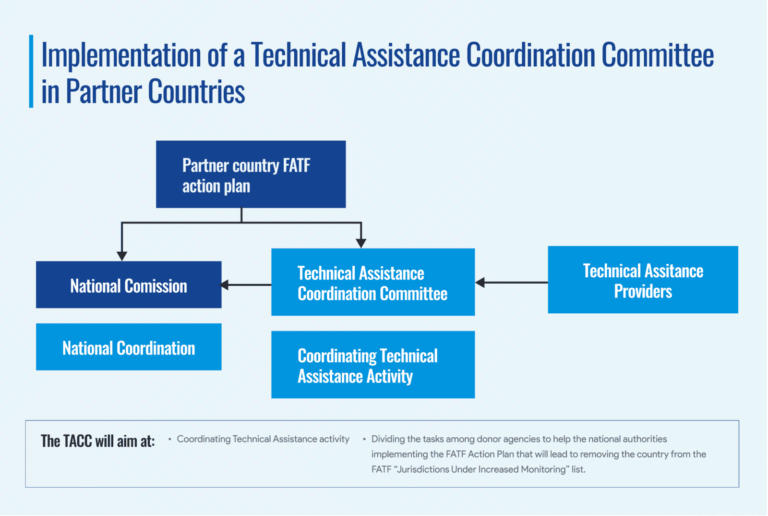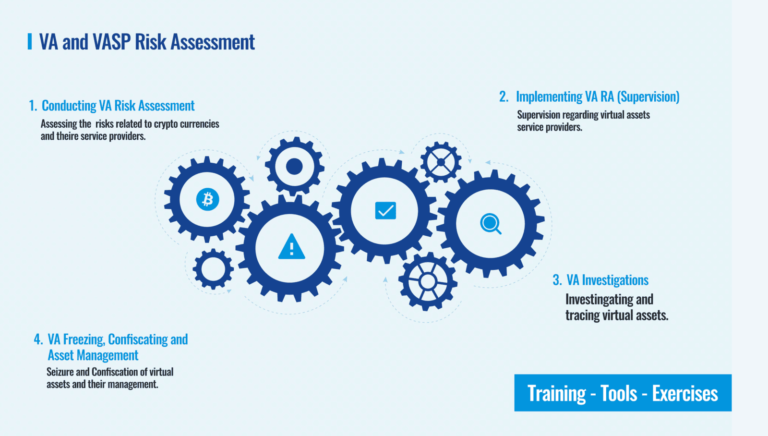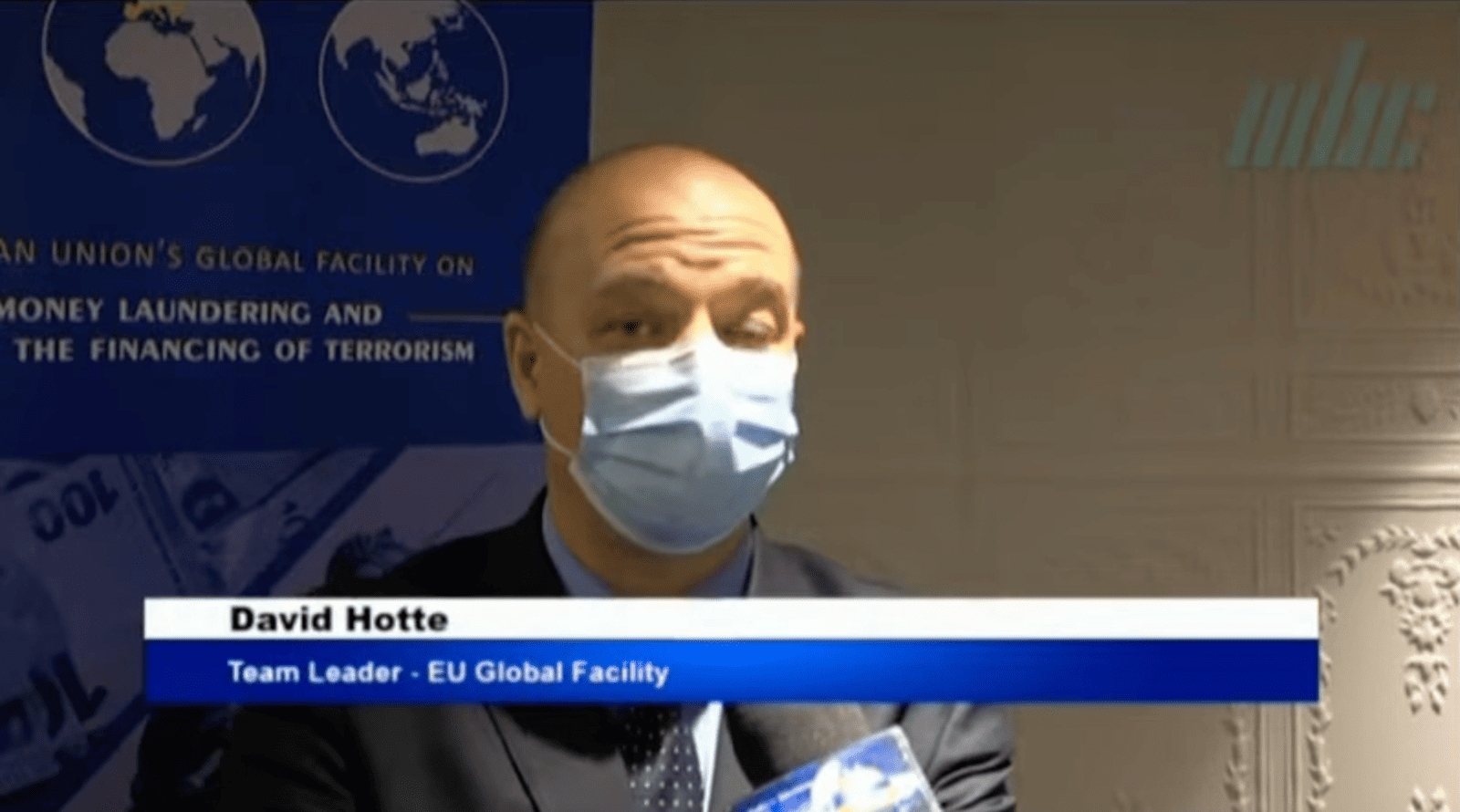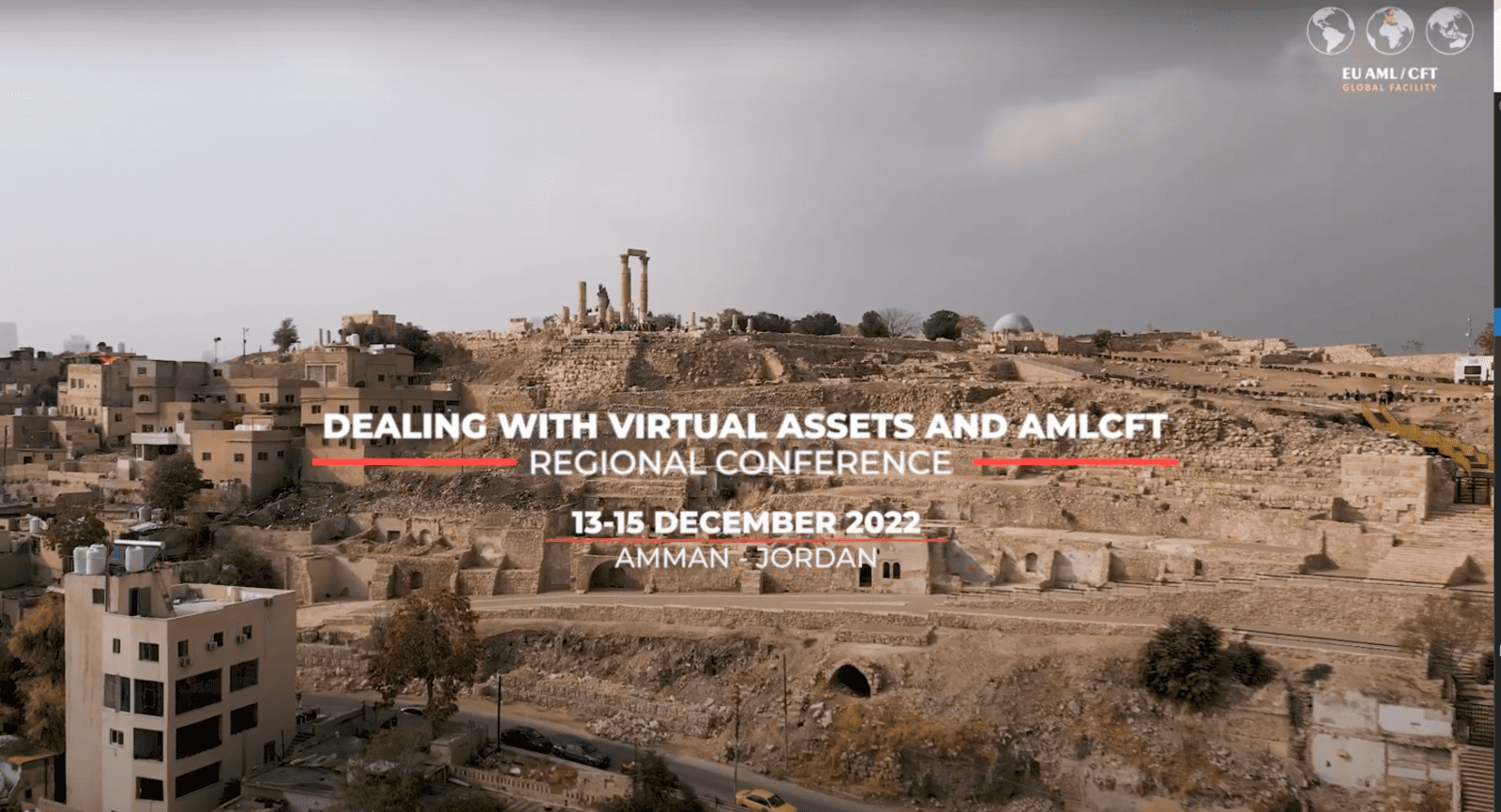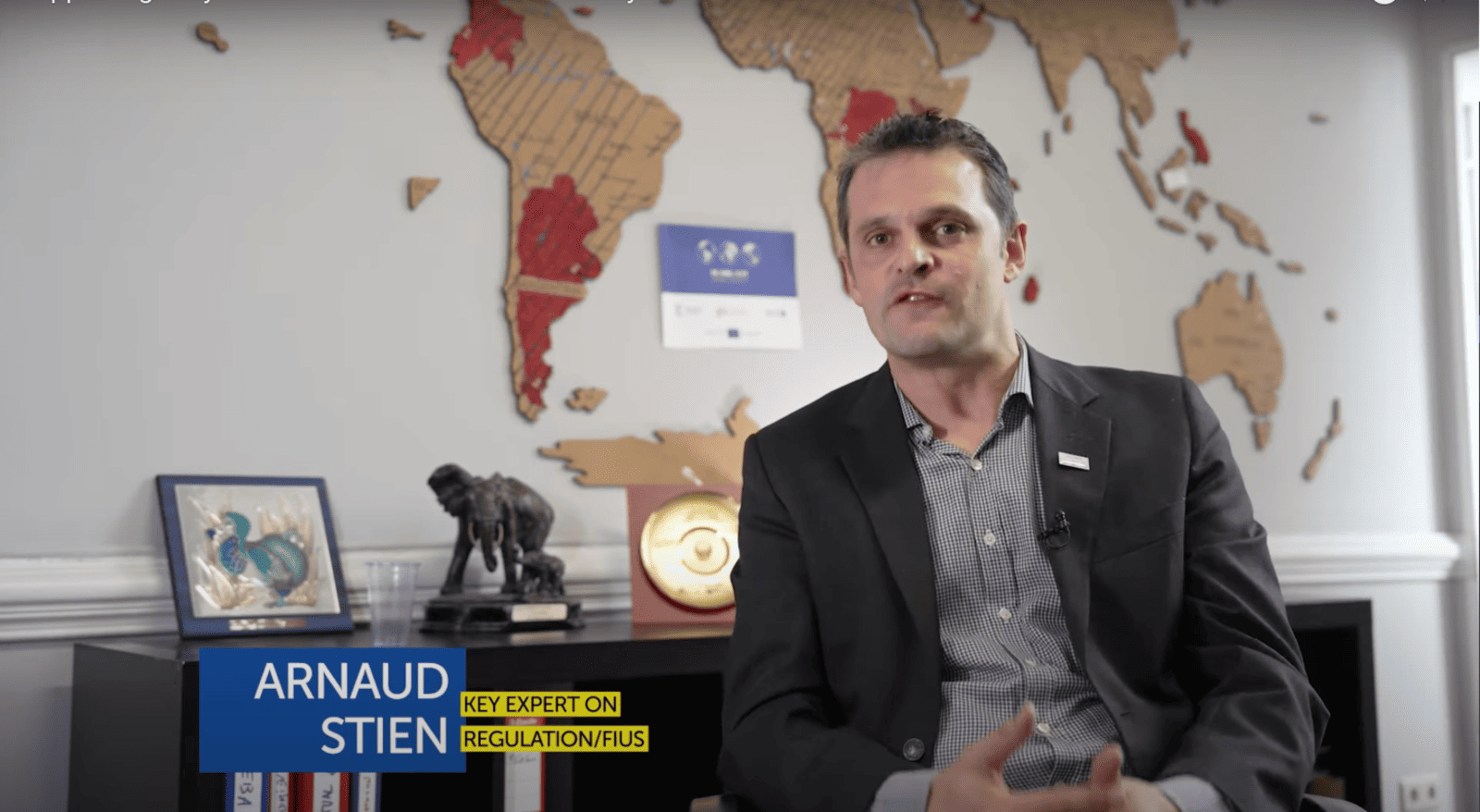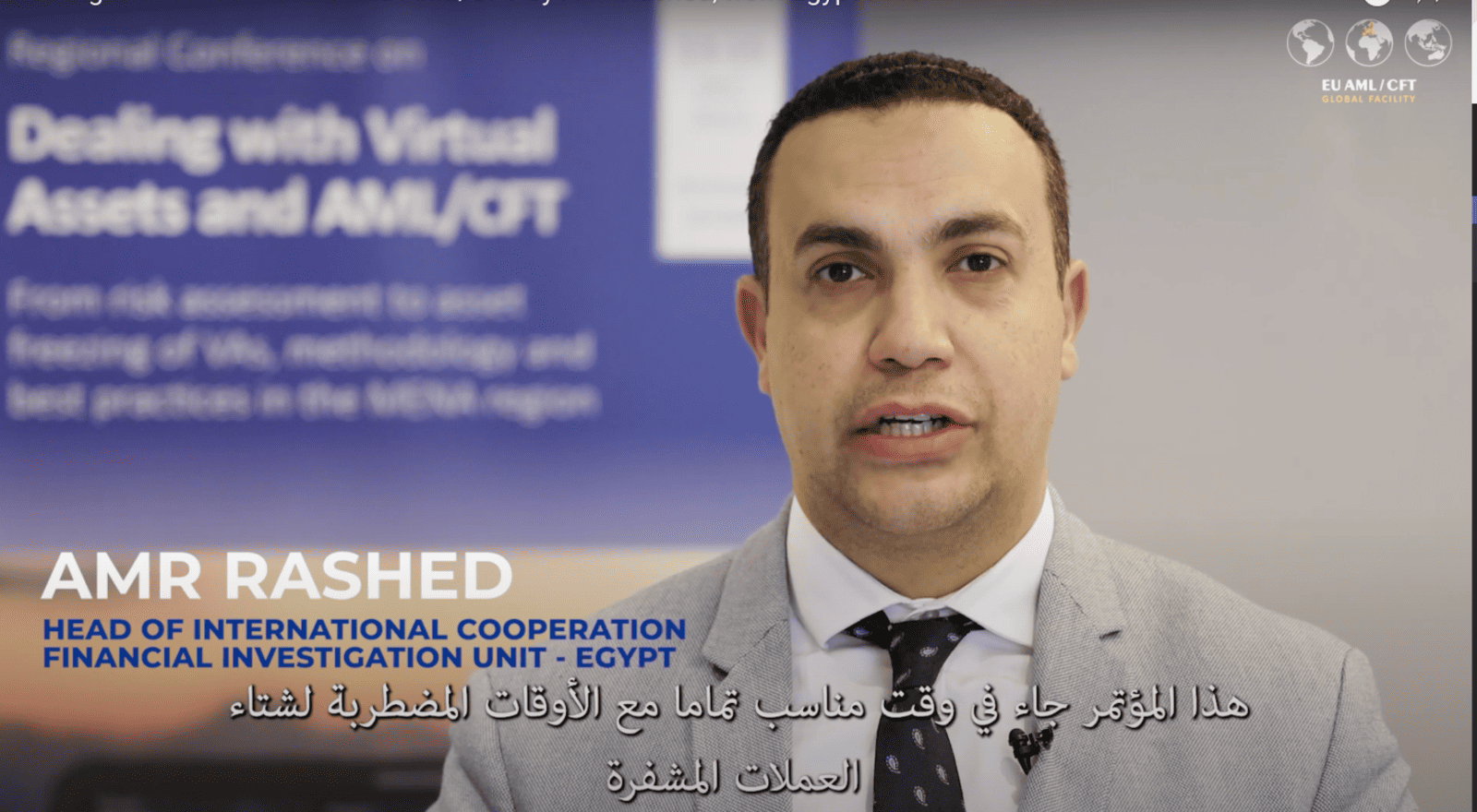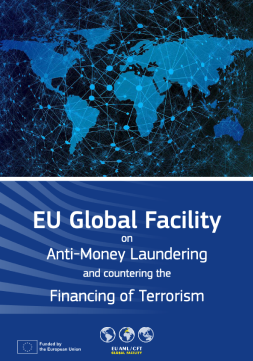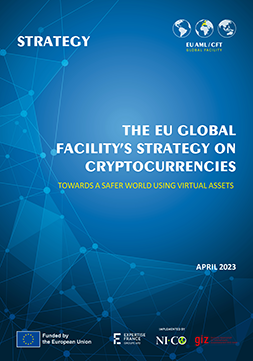Bilateral activities are specifically tailored to the needs of the partner jurisdiction and are undertaken jointly with the partners’ own authorities applying the EU Global Facility’s technical knowledge and methodology.
Support activities are implemented on a gradual timeframe, with various workstreams targeting policy makers, financial supervisors and regulators, beneficial ownership registries, law enforcement agencies, financial institution and other relevant businesses and professions (e.g., lawyers, notaries, accountants, real estate agents).

